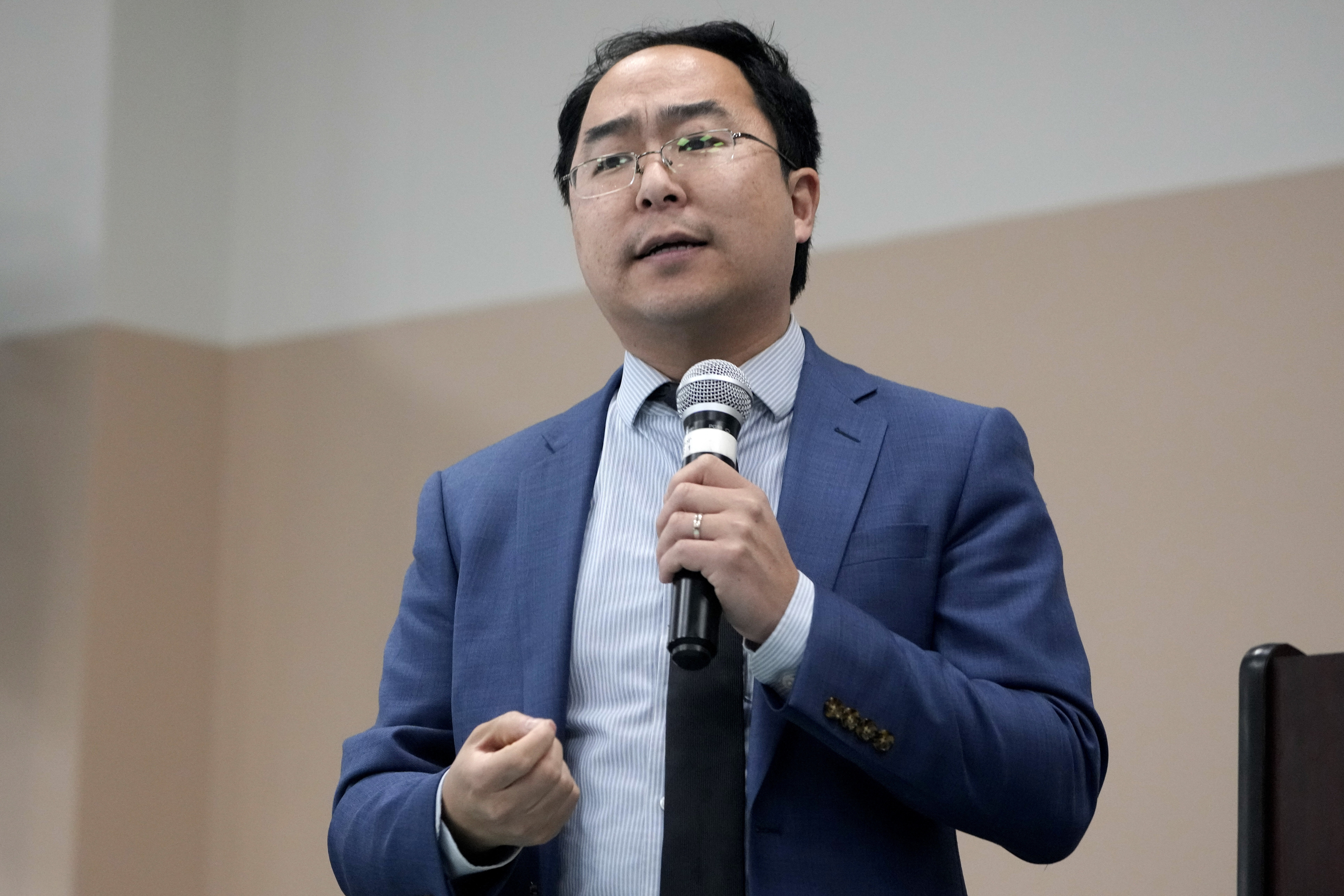
In a decision sure to upend New Jersey politics for years to come, a federal judge on Friday forbade the use of the state’s controversial county-based “line” system — the backbone of New Jersey’s clubby political machine — in party primaries in June.
U.S. District Judge Zahid Quraishi ruled in favor of U.S. Rep. Andy Kim (D), a Senate candidate, and two Democratic House candidates, who had sued for an emergency injunction against the “line” system in late February on the grounds that it violated their First Amendment rights under the freedom of association and the Constitution’s prohibition on state laws interfering with federal election outcomes. Kim’s chief opponent, New Jersey first lady Tammy Murphy, who was poised to get the line in the state’s most populous counties, withdrew from the race on Sunday, but Kim proceeded with his lawsuit anyway.
“The integrity of the democratic process for a primary election is at stake and the remedy Plaintiffs are seeking is extraordinary. Mandatory injunctive relief is reserved only for the most unusual cases,” Qureishi wrote in his 49-page decision. “Plaintiffs’ burden on this Motion is therefore particularly heavy. Nevertheless, the Court finds, based on this record, that Plaintiffs have met their burden and that this is the rare instance when mandatory relief is warranted.”
Under the line system, the local Democratic and Republican parties in 19 of the state’s 21 counties put candidates endorsed by their respective county parties in prominent places on the ballot, while relegating non-endorsed candidates to peripheral areas known as “ballot Siberia.” The system provided a tremendous advantage to candidates with ties to county party chairs and other insiders, since ordinary primary voters often cast ballots for the line candidates by default. One study that the plaintiffs presented to the court found that, on average, the line conferred a 38-point advantage for its recipients in primary elections.
As a result, Qureishi concluded, candidates excluded from the line “have shown a severe burden on their First Amendment rights.”
For the upcoming June primaries, Qureishi ordered the county clerks of those 19 counties to instead group candidates on the ballot based on the office they are seeking — a system known as the “office block ballot” — with a candidate’s place in the order of each block to be determined at random.
Qureishi did not explicitly weigh in on the constitutionality of the line overall, leaving open the possibility that the injunction against the line will be limited to the primaries in June. And some county clerks have said they plan to appeal the decision to the Third Circuit Court of Appeals.
Should the ruling hold, the immediate impact on New Jersey’s Democratic Senate primary is likely to be limited as well. Kim was already the prohibitive favorite in the primary following Murphy’s departure from the race.
But the federal judge’s decision struck a major blow at the entire New Jersey machine. The Garden State is the only one in the country where county party endorsements determine ballot placement.
Progressive congressional candidates sued to challenge the “line” in July 2020. The New Jersey Working Families Party, the state-level branch of a major national progressive group, joined the suit in Jan. 2021, and funded the effort as it moved through the courts.
“Today’s historic ruling to abolish the line will strengthen New Jersey’s democracy by putting voters back in charge of selecting the candidates that will represent them in nearly every level of government,” Antoinette Miles, the state director for the New Jersey Working Families Party, said in a statement.
But candidate Kim’s request for an injunction dramatically expedited the process.
“I want to give him a ton of credit for taking this incredibly courageous stand,” said Rob Duffey, the Working Families Party’s national communications director. “It caught the machine flat-footed. They didn’t have time to prepare, and we had some really good arguments lined up.”
While the most passionate advocates against the line are typically on the left, plenty of the state’s moderate voters have also taken issue with a system they associate with cronyism and featherbedding in public contracts and employment.
“Too few people control too much,” Jordan Glatt, a university administrator and self-described conservative Democrat from Springfield, New Jersey, said of the “line” system.
Disclaimer: The copyright of this article belongs to the original author. Reposting this article is solely for the purpose of information dissemination and does not constitute any investment advice. If there is any infringement, please contact us immediately. We will make corrections or deletions as necessary. Thank you.
